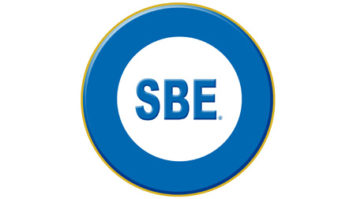Nondiscrimination Certification Raises More Questions
May 1, 2011 1:00 AM, By Lee Petro
In the March 2011 FCC Update I discussed the certifications all applicants must make when filing applications for license renewal (FCC Form 303-S). I briefly referenced a new certification that required applicants to certify that their advertising contracts did not discriminate on the basis of race or ethnicity. Recent pronouncements by the Commission, however, require a more thorough review of the nondiscrimination policy certification to be made in the renewal application.
The nondiscrimination policy relates to the FCC’s 2007 Diversity Proceeding, in which the Commission sought to end the reported practice of advertising agencies issuing “No Urban/No Spanish” dictates. The Commission concluded that such practices were discriminatory, but acknowledged it had limited jurisdiction over advertising agencies. Instead, the Commission focused on broadcast stations, and determined it would require broadcast stations to certify compliance with the new nondiscrimination policy when they filed their renewal of license applications. At the time, the Commission did not provide any guidance as to how broadcasters should come into compliance with the new policy, the timing of when the new policy would be effective, or how the new policy would be enforced in the next renewal cycle.
With the upcoming renewal cycle, the Commission modified the Renewal Form (FCC Form 303-S) to include the following certification: Commercial licensee certifies that its advertising sales agreements do not discriminate on the basis of race or ethnicity and that all such agreements held by the licensee contain nondiscrimination clauses. The instructions to the Renewal Form provided only slightly more guidance as to what was required of broadcasters: Prohibited discriminatory practices include “no urban/no Spanish” dictates. Broadcasters must have a reasonable basis for making this certification. If the response to Item 7 is “no,” please attach an exhibit explaining the persons and matters involved and why the matter is not an impediment to a grant of this application.
Further complicating matters, the Commission released a public notice on March 14, 2011, announcing the effectiveness of the new version of the renewal form, indicating that the non-discrimination policy was effective as of that day. Additionally, the Commission stated that all broadcasters must certify in their renewal application whether they were in compliance with the new policy as of March 14, through the end of the license term.
Because the Commission had not previously stated when the new policy would be effective and how it would be enforced, the Public Notice caught many flat-footed. One week later, the Enforcement Bureau issued an advisory indicating that if an applicant was unable to certify compliance with the nondiscriminatory policy in its renewal application, the Commission’s staff will review the explanation when “determining whether to renew the license.”
With the relative dearth of official guidance it makes sense for broadcasters to, at the very least, take the following steps: (a) adopt a no-discrimination-in-advertising policy statement and include the policy statement in their employment manuals; (b) use their best efforts to confirm that advertising aired by the stations was not obtained by or from a person or entity with the intent to discriminate; and (c) insert a clause in all advertising contracts/orders notifying the advertiser of the station’s nondiscrimination policy. Also, since most time brokerage agreements, joint sales agreements and other programming agreements also have advertising provisions, broadcasters should review the agreements and consider taking steps to come into compliance with the new policy.
Finally broadcasters should send notifications to their “handshake deal” advertisers that the policy statement has been adopted, posting the policy statement on their website, and including the policy statement in their correspondence with advertisers, as well.
It will be important for broadcasters to retain documentation of their efforts so that they can demonstrate a reasonable basis for making their certification in the renewal application. Future FCC updates will address any additional announcements by the Commission.
Dateline
May 15: Radio stations located in the District of Columbia, Maryland, Virginia and West Virginia continue to run license renewal pre-filing announcements.
June 1: All Radio stations located in the District of Columbia, Maryland, Virginia and West Virginia file license renewal application and EEO Program Report. Non-commercial radio stations also file Biennial Ownership Report (FCC 323-E).
June 1: Radio stations located in the District of Columbia, Maryland, Virginia and West Virginia run license renewal post-filing announcements on June 1 and 15, July 1 and 15, and Aug. 1 and 15.
June 1: Radio stations located in North Carolina and South Carolina run license renewal pre-filing announcements on June 1 and 16, and July 1 and 15.
Petro is a member of Fletcher, Heald & Hildreth, PLC, Arlington, VA. Email: [email protected].











